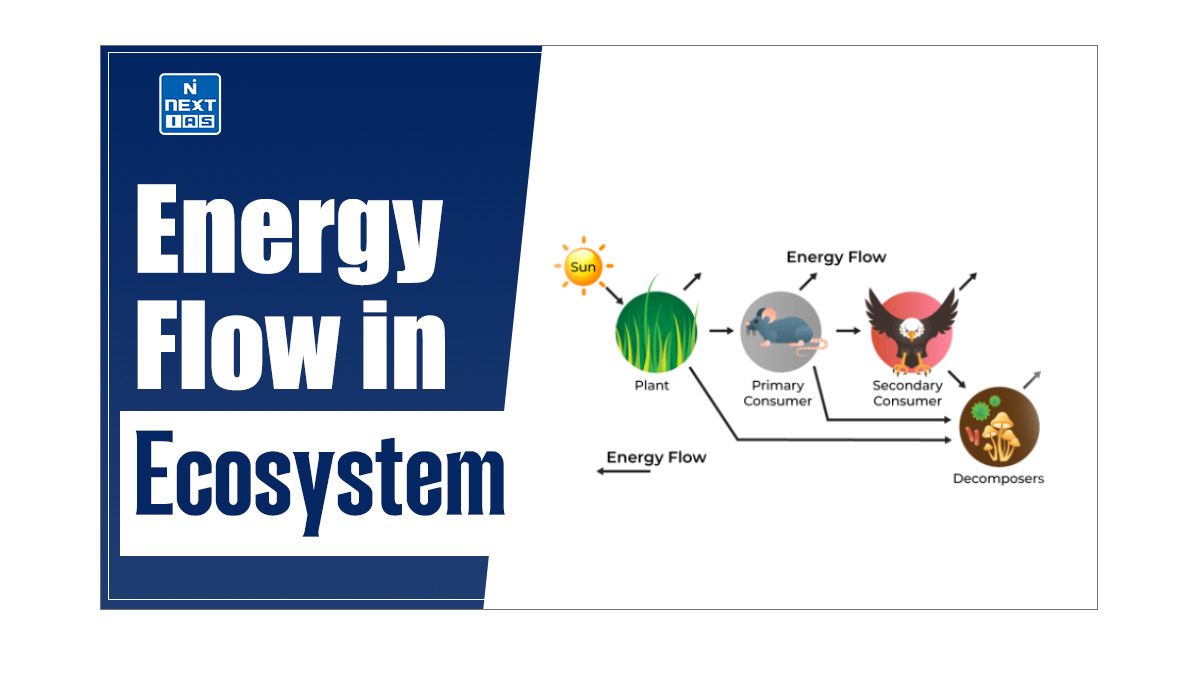
World Environment Day 2025, led by UNEP and hosted by the Republic of Korea, focuses on ending plastic pollution. Celebrated globally since 1973, it is the largest platform for environmental outreach, aiming to drive sustainable action toward climate goals, ocean protection, ecosystem restoration, and responsible consumption. This article of NEXT IAS provides a detailed overview of World Environment Day (WED), including its history, key facts, objectives, theme, celebrations, significance, and more.
About World Environment Day 2025 (WED)
- World Environment Day (WED) is a global observance, celebrated annually on June 5th, to raise awareness and encourage action for the protection of our environment.
- It is the principal vehicle of the United Nations (UN) for promoting worldwide awareness and action for the environment.
- Celebrated in over 150 countries, the day serves as a global platform for public outreach, drawing attention to pressing environmental issues and fostering collaboration among governments, businesses, non-governmental organizations, and individuals.
| According to the United Nations, “The celebration of this day provides us with an opportunity to broaden the basis for an enlightened opinion and responsible conduct by individuals, enterprises, and communities in preserving and enhancing the environment.” |
Key Facts About World Environment Day
| Date | 5 June |
| Origin | Originated in 1972 by the United Nations General Assembly (UNGA) to mark the first day of the Stockholm Conference on the Human Environment. |
| Objective | To raise global awareness and drive action to protect the environment and promote sustainable practices. |
| Organized by | United Nations Environment Programme (UNEP) |
| Theme | Each year, World Environment Day revolves around a central theme, focusing on a specific environmental issue. (Theme for World Environment Day 2025: “Beat Plastic Pollution”) |
| Host Country | Each year, a specific country or region may take a more prominent role in hosting major events and raising awareness for the chosen theme.(Host Country for World Environment Day 2025: Republic of Korea.) |
History of World Environment Day (WED)
- In 1972, the United Nations General Assembly (UNGA) passed a resolution, designating June 5th as World Environment Day during the Stockholm Conference on the Human Environment.
- The first World Environment Day was celebrated in 1973 with the theme “Only One Earth”.
- Since then, World Environment Day has been celebrated annually on June 5th, with a different host country and theme each year.
- At present, the day has become a global movement, with participation from millions of people around the world, making it one of the largest annual celebrations of the United Nations.
Objectives of World Environment Day
The objectives of World Environment Day are:
- To educate the public about pressing environmental issues and the importance of sustainable practices.
- To mobilize individuals, communities, and organizations to participate in activities that promote environmental protection and conservation.
- To advocate for the adoption of eco-friendly habits and technologies in daily life and across industries.
- To draw attention to global environmental challenges such as climate change, deforestation, pollution, and biodiversity loss, among others.
- To encourage collaboration between countries, organizations, and communities to address environmental issues collectively.
- To promote policies and initiatives that aim to protect the environment and ensure sustainable development.
- To recognize and celebrate the efforts and successes of individuals, organizations, and countries in environmental conservation and sustainability.
- To involve young people and local communities in environmental initiatives to foster a sense of responsibility and stewardship for the planet.

Host Country for World Environment Day 2025 Activities
- Though World Environment Day is organized by the United Nations Environment Programme (UNEP), each year, a different country is chosen to host the main activities of World Environment Day.
- The host country plays a crucial role in setting the theme and agenda for the year and organizes national and international events.
Activities of World Environment Day 2025 (WED)
The activities of World Environment Day (WED) across the world are marked by a range of official and public events as described below:
Official Events
The official event for World Environment Day is organized by the United Nations Environment Programme (UNEP) in collaboration with the host country for the year. It, generally, includes high-level conferences, forums, and panel discussions that bring together government leaders, environmental experts, activists, and representatives from international organizations to discuss the chosen theme and share best practices.
Public Events
Apart from the official events, several types of public events are organized across the world. They, generally, include:
- Educational Events– Schools, universities, and organizations host seminars, workshops, and lectures to educate people about environmental issues and sustainable practices.
- Community Clean-ups– Many communities organize clean-up drives in local neighbourhoods, parks, beaches, and other natural areas to reduce litter and pollution.
- Tree Planting– Tree planting campaigns are a popular activity, with groups planting trees to help combat deforestation and promote green spaces.
- Environmental Campaigns– NGOs and environmental groups launch campaigns to advocate for policies and practices that protect the environment, often focusing on the annual theme of that particular year.
- Art and Cultural Activities– Art exhibitions, film screenings, and cultural performances related to environmental themes are held to engage and inspire the public.
- Sustainable Practices– Businesses and organizations showcase their sustainable initiatives and encourage eco-friendly practices among employees and customers.
- Social Media Campaigns– Online platforms are used to spread awareness, share information, and inspire global participation through hashtags and digital events.
- Awards and Recognition– Awards and recognitions are given to individuals, organizations, and communities that have made significant contributions to environmental protection.
Theme for World Environment Day 2025
- Plastic pollution exacerbates the deadly impacts of the triple planetary crisis: the crisis of climate change, the crisis of nature, land and biodiversity loss, and the crisis of pollution and waste.
- Globally, an estimated 11 million tonnes of plastic waste leak into aquatic ecosystems each year, while microplastics accumulate in the soil from sewage and landfills, due to the use of plastics in agricultural products.
- The annual social and environmental cost of plastic pollution ranges between US$300 billion and US$600 billion.
- This year’s World Environment Day observance comes as countries make progress towards securing a global treaty to end plastic pollution, including in the marine environment.
- In November 2024, the Republic of Korea hosted the fifth session of negotiations to develop a plastic pollution treaty.
- The second part of the session will take place from 5 to 14 August in Geneva, Switzerland.
Importance of World Environment Day
The significance of World Environment Day is as follows:
- Global Awareness– World Environment Day raises global awareness about pressing environmental issues such as climate change, pollution, deforestation, biodiversity loss, and water scarcity.
- Action and Advocacy– It encourages individuals, communities, governments, and organizations to take action towards environmental conservation and sustainable development.
- Policy Impact– World Environment Day often catalyzes policy discussions and commitments at national and international levels to address environmental challenges and promote sustainable practices.
- Education and Engagement– It provides an opportunity to educate people about the importance of environmental stewardship and engage them in activities and initiatives that contribute to positive environmental outcomes.
- International Cooperation– World Environment Day fosters international cooperation and collaboration among countries, organizations, and individuals to tackle global environmental issues collectively.
- Inspiration and Innovation– It inspires innovative solutions and initiatives for environmental protection and sustainability, showcasing successful examples and best practices from around the world.
- Community Empowerment– World Environment Day empowers communities to become agents of change in their local environments, promoting grassroots action and participation.
Conclusion
World Environment Day 2025 serves as a powerful reminder of our collective responsibility to protect the planet. With a focus on ending plastic pollution, it calls for urgent, unified action to preserve ecosystems, safeguard biodiversity, and ensure a sustainable future. Every step taken today shapes a cleaner, greener tomorrow.
Frequently Asked Questions (FAQs)
Why 5th June is celebrated as Environment Day?
The 5th of June is celebrated as World Environment Day because it marks the first day of the Stockholm Conference on the Human Environment in 1972. This conference was a landmark event that brought together government officials, scientists, and environmental activists from around the world to discuss the growing concerns about environmental degradation.
When was the first World Environment Day celebrated?
The United Nations Conference on the Human Environment convened in Stockholm, Sweden, on June 5, 1972. In recognition of this event, World Environment Day was first celebrated on June 5, 1973. Since then, this special day has been observed annually on the same date to raise awareness about environmental issues and promote global environmental action.





